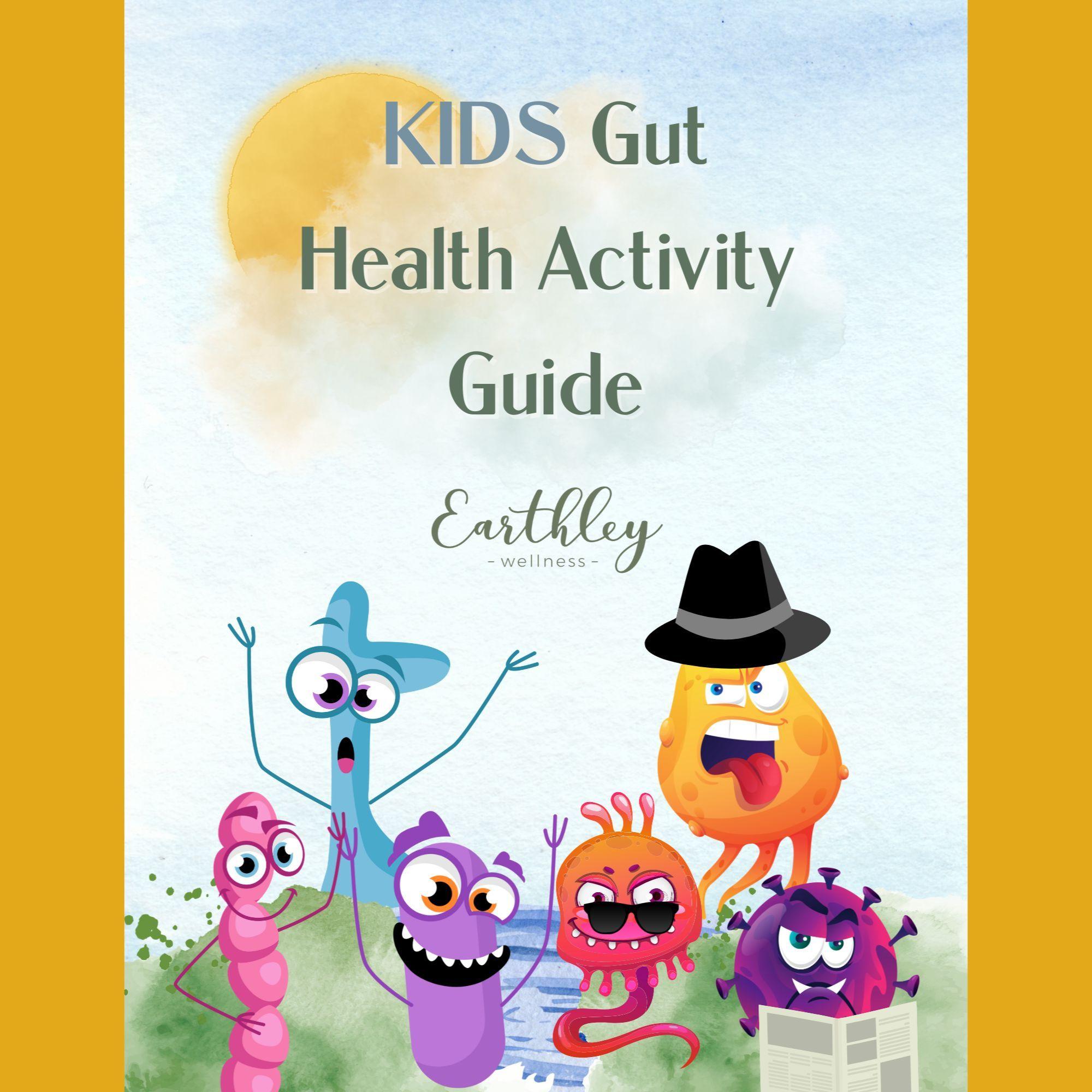7 Surprising Reasons Why Kids Don't Sleep Well

Kids not sleeping well is a near-universal problem. On every parenting forum across the internet (and probably many doctors’ offices), there are parents asking “My kids don’t sleep well! What do I do?”
And inevitably, there is the usual advice: “Consistent bedtime routine. No screen time in the evenings. Let them know the day is over, and you’re the boss.”
The problem is, this advice completely ignores that tired children want to sleep, and aren’t “being bad” or trying to drive their parents crazy. Instead, they’re actually struggling, and need help!
So what’s a tired parent to do?
The Real Reasons Kids Don’t Sleep Well
There are lots of potential reasons a kid might not sleep well, and we can’t cover them all here. If your child is sleeping fewer than 4 hours a night, has neurological symptoms, or other serious health issues, please see a doctor.
But if your child just fights bedtime or wakes more frequently than you’d prefer overnight…keep reading!
In most cases, poor sleep habits are not for the reasons most say — lack of bed time routine, parents not being “firm” enough, bad habits when waking. A lot of “experts” blame parents for wakings, and suggest they just need to let their children cry it out, or punish them, or that allowing kids out of bed or to sleep with them “created” the problem.
This is not true, though, in general.
So why don’t kids sleep?
#1: Need More Magnesium
We all need a lot of magnesium because it’s a mineral that plays a huge role in muscle use, regular sleep, regular bowel function, and lots more. When we don’t get enough magnesium, sleep rhythms are interrupted. Usually this looks like struggles to fall asleep, a “twitchy” feeling in arms/legs, or waking at 2/3 AM for no real reason and struggling to fall back asleep. (source, source)
Since magnesium has so many important uses in the body, this is usually the first thing to try! The best way to do it via magnesium chloride topically — in a spray or lotion.
This is part of how I knew I needed to find a way to make my own. I am selling it now as well – Good Night Lotion.
#2: Lack of Physical Activity
Sometimes, children struggle to sleep because they have too much energy pent up in their bodies. They are tired — but unable to relax enough to fall asleep. (In adults, a lack of physical activity could lead to a visible build-up of sluggish lymph fluid, causing soreness around joints or lymph nodes, especially pper arms, upper thighs, neck/shoulders.)
Get out for a walk or some play time during the day! Do it during mid-day sun for 10 – 15 minutes if possible, because that also addresses #7!
#3: Low Iron Levels
This one is really important. Anemia actually interferes with the brain’s sleep-wake patterns, and if not addressed, can impact sleep permanently. Iron is likely the issue if kids struggle to sleep because they feel twitchy in arms or legs, or if they wake often because their limbs move suddenly and startle them. Iron is also incredibly necessary for brain development, so this isn’t one you want to ignore. (source, source, source, source)
My favorite sources are desiccated beef liver pills or an herbal extract that I started called Energy Plus (Herbal Iron).
#4: Stress
Yes, even kids can be stressed! Troubles at school, difficulties with siblings or parents, and much more can affect kids. Unfortunately, kids are experiencing stress, anxiety, and depression at younger and younger ages.
A diet change and removal of the stressors is the best plan of action here. Talk to teachers or friends to determine what’s up and address the issue(s). Remove sugar, food dyes, and processed foods. Adaptogenic herbs can also improve the body’s response to stress and promote more restful sleep.
Lavender essential oil or clary sage essential oil may be beneficial here. Also, herbs like ashwagandha, catnip, or skullcap can improve the stress response and promote more restful sleep.
Try my favorite herbal remedies: Sleepy Time and Adaptogenic Immunity.
#5: Low Zinc Levels
This is a newer one, but zinc levels have been linked to sleep regulation. Higher consumption of zinc in the diet has been shown to improve sleep quality. If kids aren’t eating meat, nuts, or beans they can become deficient. The nuts and beans have to be properly soaked in order to get rid of the phytic acid so they don’t block zinc absorption.
All we know right now is that zinc is important! Zinc deficiency is also related to other concerns. (source, source, source)
Include more zinc-rich foods, especially meat and seafood. Desiccated liver pills are good.
#6: Gut Health Issues
Unsurprisingly, the gut is connected to everything! Poor gut health can lead to poor sleep. (Which is likely because poor gut health leads to both pain — disturbing sleep — and various vitamin/mineral deficiencies, which also affect sleep.)
Including probiotic foods in the diet is important, and will promote better gut health over time.
Diet changes, including avoiding sugar, refined white flour, synthetic B vitamins, and polyunsaturated oils, are important here.
Read more about Gut Health Support and Protocol and this fun Kid’s Gut Health Activity Guide.
#7: Need More Vitamin D
Vitamin D is yet another nutrient that affects sleep! It’s actually a pre-hormone, and helps the body to make the hormones it needs to regulate the sleep-wake cycle. Many people aren’t getting enough because they avoid the sun or use sunscreen (which blocks the rays that create vitamin D in the skin), and it isn’t found in many foods. (source, source, source)
The best solution is more sun (especially in the summer), but failing that, cod liver oil is a good solution.
My go-to remedies are Cod Liver Oil and Vitamin D Cream.

What NOT To Do
Sometimes people want to treat sleep issues with things that are not a good idea…and are going to be more trouble than they’re worth in the long run.
#1: Melatonin
There are not a lot of long-term safety studies on it, and a lot of people who go on it, don’t get off of it. It can also cause day time sleepiness, stomach pain, and other side effects. While it may be useful in rare cases, these should be under the care of a medical professional.
#2: OTC Sleep Aids
These are usually habit-forming, which is not a good thing for anyone — but especially children. They don’t address the underlying causes of sleep problems; they just force a child to sleep anyway. Not what you want!
#3: Punish/CIO
This is many peoples’ response to (especially) babies and toddlers who don’t sleep well. They’re told that it’s just willful, manipulative behavior and that parents just need to be very firm with their children. Tactics include carrying children back to bed repeatedly, refusing to pick them up when they cry, locking their doors, and, in general, ignoring them. Some recommend spanking toddlers who get out of bed.
In general, if a child is having trouble sleeping, there’s a reason why. They are not just deciding not to sleep to annoy you. Punishing them or ignoring them does not solve the underlying problem or meet the need. Once the needs are met, a tired child will sleep!
#4: Ignore It
Please don’t ignore ongoing sleep issues. While everyone had a bad night here or there, weeks or months of poor sleep mean there’s something more going on. Since these vitamin and mineral deficiencies can affect a lot more than sleep (including brain development, immunity, and physical growth), it’s best not to ignore it but to figure out what’s going on and help! Poor quality sleep has a negative and lasting impact on both the child and the parents.
I hope this is helpful, for all you sleep-deprived families out there!
Some of our top recommendations:

For healthy sleep and magnesium (NEW! Moonlight Bloom scent)

Supports iron levels to maintain balanced energy.

To promote a healthy lymphatic system.

To promote calm mood and restful sleep

For daily stress and immune support

For natural vitamin D

Promotes energy, gut health, and immunity with the nourishing power of plants

